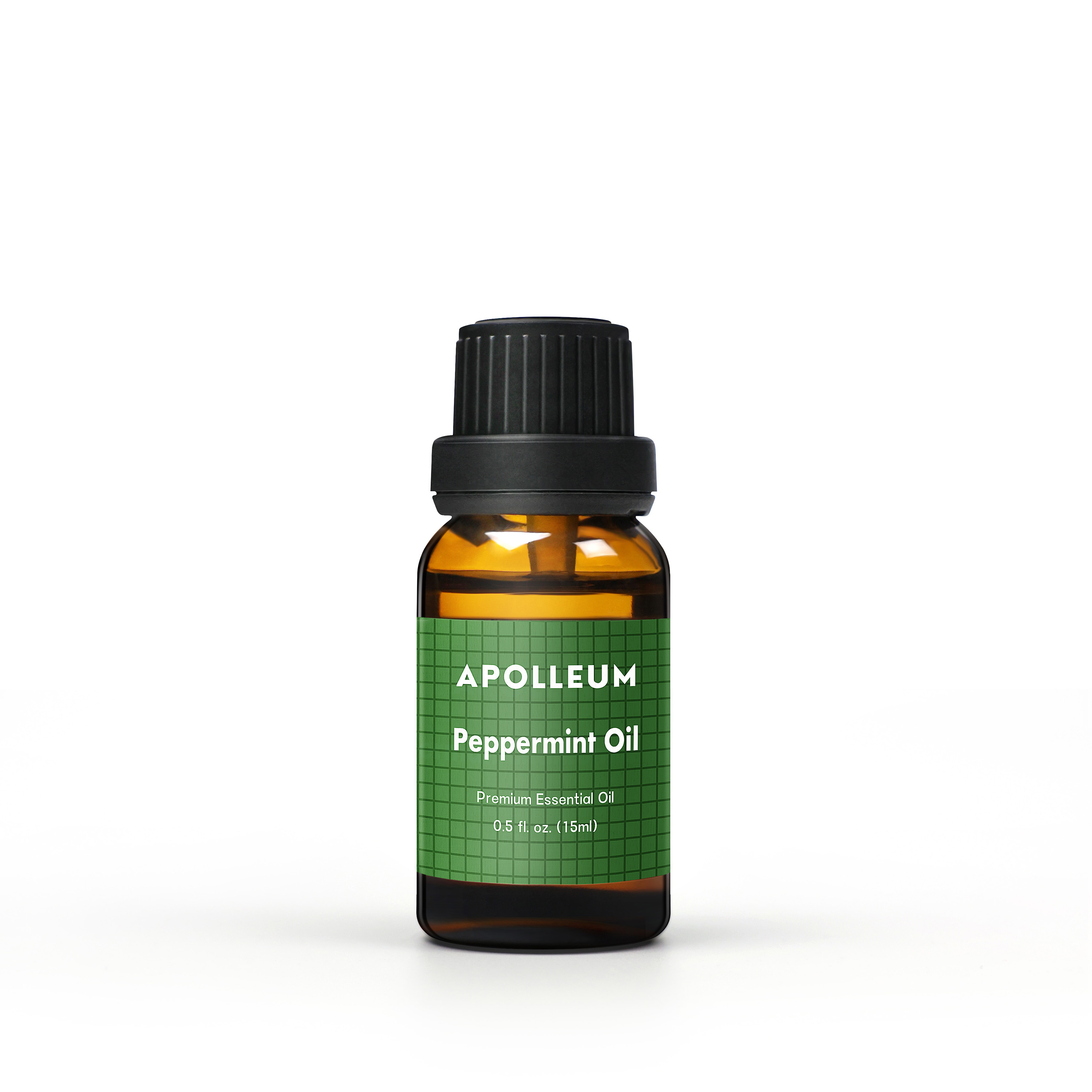

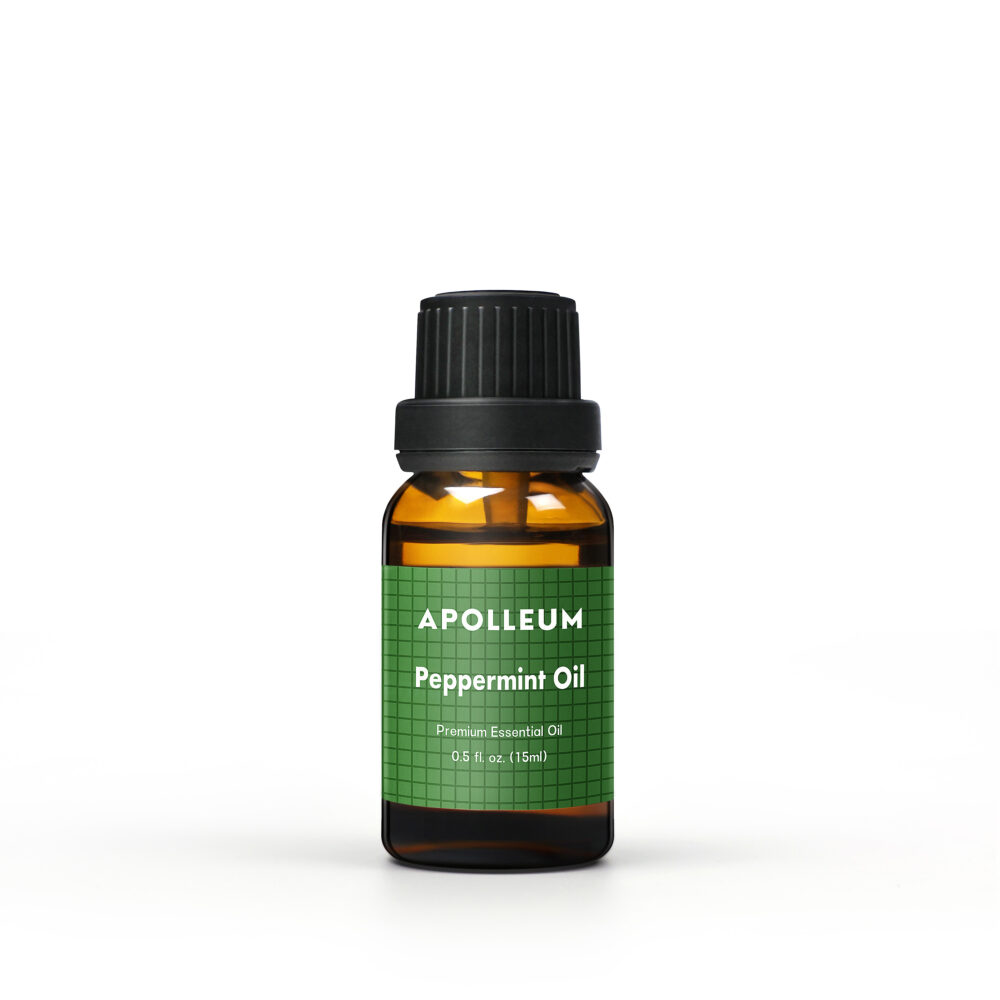
Peppermint Oil
$17.88
100% PURE PEPPERMINT ESSENTIAL OIL
Discover the refreshing essence of peppermint with Apolleum. Our carefully curated peppermint oil, derived from the finest sources, brings a lively aroma and a rejuvenating coolness when applied. Elevate your senses and well-being with Apolleum’s premium peppermint oil—nature’s invigorating gift. Energize your day, shop now!
Size: 0.5 fl oz
Free shipping on orders over $50!
- No-Risk Money Back Guarantee!
- No Hassle Refunds
- Secure Payments
Description
- Manufacturing Method: distilled
- Part of Plant: Plant
- Main Chemotypes: Menthol, Menthone, 1,8-Cineol, Menthyl acetate, Isomenthone, Neomenthol
- Smells Like: sharp, minty, herbaceous, powerful
Introduction to Peppermint Oil
Definition and Background
Peppermint oil, derived from the peppermint plant (Mentha piperita), is a popular essential oil known for its refreshing aroma and myriad health benefits. The peppermint plant is a hybrid of watermint and spearmint and is native to Europe and Asia but is now cultivated worldwide for its culinary, medicinal, and aromatic properties.
Peppermint oil is extracted from the leaves and flowering tops of the peppermint plant through steam distillation, resulting in a potent and fragrant oil with a characteristic minty scent. Its main active component is menthol, which provides the oil with its cooling and invigorating properties.
Historical Uses
Peppermint has a long history of use dating back thousands of years. Ancient civilizations, including the Egyptians, Greeks, and Romans, prized peppermint for its medicinal properties and used it to treat various ailments.
- The ancient Egyptians used peppermint as a digestive aid and for its refreshing aroma in cosmetics and perfumes.
- The Greeks and Romans valued peppermint for its ability to soothe digestive issues, alleviate headaches, and freshen breath.
- In traditional Chinese and Ayurvedic medicine, peppermint was used to promote digestion, relieve respiratory congestion, and invigorate the mind and body.
Throughout history, peppermint has been revered for its versatile nature and has been incorporated into culinary dishes, herbal remedies, and aromatic preparations. Today, peppermint oil continues to be widely used for its therapeutic benefits, culinary applications, and aromatic qualities, making it a staple in homes around the world.
Composition of Peppermint Oil
Chemical Constituents
Peppermint oil is composed of various chemical constituents that contribute to its unique aroma and therapeutic properties. The primary active compound in peppermint oil is menthol, which gives it its characteristic cooling sensation. Other important constituents include:
- Menthol: Provides a cooling sensation and helps relieve pain and inflammation.
- Menthone: Contributes to the minty aroma of peppermint oil and has analgesic properties.
- Menthyl acetate: Adds to the minty scent and possesses antifungal and antibacterial properties.
- 1,8-cineole (eucalyptol): Exhibits anti-inflammatory and analgesic effects and helps alleviate respiratory congestion.
- Limonene: Contributes to the citrusy aroma of peppermint oil and has antioxidant properties.
- Pulegone: Provides a minty aroma and has insecticidal and repellent properties.
Therapeutic Properties
Peppermint oil boasts a wide range of therapeutic properties that make it a valuable addition to aromatherapy, skincare, and natural medicine. Some of the key therapeutic properties of peppermint oil include:
- Analgesic: Peppermint oil has pain-relieving properties and can be used topically to alleviate headaches, muscle aches, and joint pain.
- Antispasmodic: Peppermint oil helps relax smooth muscles and can be used to relieve digestive discomfort, menstrual cramps, and respiratory spasms.
- Anti-inflammatory: Peppermint oil has anti-inflammatory effects and can help reduce inflammation in conditions such as arthritis and skin irritation.
- Antimicrobial: Peppermint oil exhibits antimicrobial activity against bacteria, viruses, and fungi, making it useful for treating infections and promoting wound healing.
- Stimulating: The invigorating aroma of peppermint oil can help boost energy levels, improve mental clarity, and enhance focus and concentration.
Overall, the diverse chemical composition of peppermint oil contributes to its numerous therapeutic properties, making it a versatile and effective natural remedy for various health concerns.
Health Benefits of Peppermint Oil
Peppermint oil offers a wide range of health benefits, from promoting digestive and respiratory health to providing relief from headaches and reducing stress and anxiety. Let’s explore each of these benefits in detail:
Digestive Health
Peppermint oil is well-known for its ability to support digestive health and alleviate various gastrointestinal issues. It can help:
- Relieve Indigestion: Peppermint oil has antispasmodic properties that help relax the muscles of the digestive tract, reducing symptoms of indigestion such as bloating, gas, and stomach discomfort.
- Ease Nausea: Inhaling peppermint oil or consuming it in tea can help alleviate nausea and vomiting, making it a natural remedy for motion sickness, morning sickness during pregnancy, and chemotherapy-induced nausea.
- Relieve Irritable Bowel Syndrome (IBS) Symptoms: Peppermint oil capsules have been shown to be effective in reducing symptoms of IBS, including abdominal pain, bloating, and diarrhea, by reducing intestinal spasms.
Respiratory Health
Peppermint oil is beneficial for respiratory health and can provide relief from various respiratory conditions. It can:
- Clear Respiratory Congestion: The menthol in peppermint oil acts as a natural decongestant, helping to clear nasal congestion and ease breathing. Inhaling steam infused with peppermint oil can help relieve symptoms of colds, sinusitis, and allergies.
- Soothe Sore Throat: Peppermint oil has antibacterial and anti-inflammatory properties that can help soothe a sore throat. Gargling with diluted peppermint oil or using it in throat lozenges can provide relief from throat discomfort.
Headache Relief
Peppermint oil is effective in relieving tension headaches and migraines due to its analgesic and soothing properties. It can:
- Reduce Headache Intensity: Applying diluted peppermint oil to the temples and forehead can help alleviate tension headaches and migraines by promoting relaxation and relieving muscle tension.
- Increase Blood Flow: Peppermint oil has vasodilating properties, meaning it can widen blood vessels and improve blood flow to the brain, which may help reduce the frequency and severity of migraines.
Stress and Anxiety Reduction
The refreshing aroma of peppermint oil has calming and stress-reducing effects on the mind and body. It can:
- Promote Relaxation: Inhaling the aroma of peppermint oil through aromatherapy or using it in massage oils can help reduce feelings of stress, anxiety, and tension.
- Enhance Mood: Peppermint oil has mood-enhancing properties that can uplift the spirits and promote a sense of well-being, making it a valuable tool for managing stress and anxiety.
Overall, peppermint oil offers a multitude of health benefits, making it a versatile and valuable addition to your natural medicine cabinet.
Skin and Hair Benefits of Peppermint Oil
Peppermint oil is not only beneficial for internal health but also offers a variety of advantages for skin and hair care. Let’s delve into the specific benefits:
Cooling Effect
One of the most notable benefits of peppermint oil for the skin is its cooling sensation, thanks to its high menthol content. This cooling effect can:
- Soothe Irritated Skin: Peppermint oil can provide relief from itching, irritation, and inflammation associated with conditions like sunburn, insect bites, and rashes.
- Refresh and Revitalize: Applying diluted peppermint oil to the skin can leave it feeling refreshed and revitalized, making it a popular ingredient in skincare products like toners and facial mists.
Antimicrobial Properties
Peppermint oil possesses strong antimicrobial properties, making it effective in:
- Fighting Acne: Peppermint oil’s antimicrobial properties help combat acne-causing bacteria, making it a valuable addition to acne-fighting skincare routines. It also helps reduce inflammation associated with acne breakouts.
- Preventing Infections: The antimicrobial action of peppermint oil can help prevent skin infections by inhibiting the growth of bacteria and fungi. It’s particularly beneficial for treating minor cuts, scrapes, and wounds.
Hair Growth Stimulation
Peppermint oil has been shown to stimulate hair growth and improve scalp health. It can:
- Promote Hair Growth: Peppermint oil helps improve blood circulation to the scalp, which can stimulate hair follicles and promote hair growth. Massaging diluted peppermint oil into the scalp can help nourish hair follicles and encourage healthy hair growth.
- Relieve Scalp Conditions: Peppermint oil’s antimicrobial and soothing properties can help relieve scalp conditions like dandruff and itching, promoting a healthy scalp environment for optimal hair growth.
Tips for Use:
- For topical application, always dilute peppermint oil with a carrier oil like coconut or jojoba oil to prevent skin irritation.
- Conduct a patch test before using peppermint oil on a larger area of skin to check for sensitivity or allergic reactions.
- When using peppermint oil for hair growth stimulation, massage it into the scalp and leave it on for at least 15-20 minutes before rinsing thoroughly with shampoo.
Incorporating peppermint oil into your skincare and hair care routine can provide a refreshing and invigorating experience while offering numerous benefits for skin and hair health.
How to Use Peppermint Oil
Peppermint oil offers various methods of application, each with its own benefits and considerations. Let’s explore how to use peppermint oil safely and effectively:
Inhalation
Inhaling the aroma of peppermint oil is a popular and effective way to experience its refreshing and invigorating effects. You can:
- Diffuse: Add a few drops of peppermint oil to a diffuser and diffuse it in your home or workspace to promote alertness, mental clarity, and a sense of well-being.
- Direct Inhalation: Inhale peppermint oil directly from the bottle or add a drop to your palms, rub them together, and cup them over your nose to enjoy the uplifting aroma.
Topical Application
Topical application of diluted peppermint oil allows for targeted relief from various skin and muscle issues. Here’s how to use it:
- Massage: Dilute peppermint oil with a carrier oil such as coconut or almond oil and massage it into sore muscles, temples, or the back of the neck to alleviate tension headaches, muscle aches, and migraines.
- Skincare: Add a few drops of peppermint oil to your moisturizer, body lotion, or facial cleanser to enjoy its cooling and soothing effects on the skin. Be sure to dilute it properly to avoid skin irritation.
Oral Consumption (With Caution)
While peppermint oil is generally recognized as safe for consumption in small amounts, it should be used with caution and under the guidance of a healthcare professional. Here are some ways to use peppermint oil orally:
- Tea: Add a drop of food-grade peppermint oil to a cup of hot water to make a refreshing peppermint tea. This can help soothe digestive issues like indigestion and bloating.
- Cooking: Use a drop of peppermint oil to flavor desserts, smoothies, or savory dishes. Remember that a little goes a long way, as peppermint oil is highly concentrated.
Precautions:
- Dilute Properly: Always dilute peppermint oil with a carrier oil before applying it to the skin to avoid irritation or sensitization.
- Patch Test: Perform a patch test before using peppermint oil topically or orally to check for any adverse reactions or allergies.
- Use with Caution: If consuming peppermint oil orally, start with a small amount and monitor for any digestive discomfort or allergic reactions. Avoid using large quantities or prolonged use without medical supervision.
By following these guidelines, you can safely and effectively incorporate peppermint oil into your daily routine to enjoy its numerous health benefits.
Safety Precautions and Side Effects
While peppermint oil offers numerous health benefits, it’s essential to use it safely and be aware of potential side effects and interactions. Here are some safety precautions to keep in mind:
Potential Allergic Reactions
Peppermint oil can cause allergic reactions in some individuals, especially those with sensitivities to mint or menthol. Symptoms of an allergic reaction may include:
- Skin irritation, redness, or rash
- Itching or burning sensation
- Swelling or hives
- Difficulty breathing or wheezing
If you experience any allergic reactions after using peppermint oil, discontinue use immediately and consult a healthcare professional.
Dilution Guidelines
Peppermint oil is highly concentrated and should always be diluted with a carrier oil before applying it to the skin. Dilution helps reduce the risk of skin irritation or sensitization. Follow these dilution guidelines:
- For adults: Mix 1-2 drops of peppermint oil with 1 teaspoon of carrier oil (such as coconut oil, almond oil, or jojoba oil).
- For children and those with sensitive skin: Use an even more diluted mixture, such as 1 drop of peppermint oil to 2-3 teaspoons of carrier oil.
Interaction with Medications
Peppermint oil may interact with certain medications or medical conditions. If you are taking any medications or have underlying health issues, consult a healthcare professional before using peppermint oil, especially orally. Peppermint oil may:
- Interact with medications that affect the liver, such as certain statins, antifungals, and anti-inflammatory drugs.
- Increase the absorption of certain medications, leading to higher than intended levels in the bloodstream.
- Exacerbate symptoms of gastroesophageal reflux disease (GERD) or acid reflux in some individuals.
Always disclose your use of peppermint oil to your healthcare provider to ensure it is safe for you, especially if you are pregnant, nursing, or have any pre-existing medical conditions.
Choosing the Right Peppermint Oil
Quality Considerations: Organic vs. Conventional
When it comes to selecting the perfect peppermint oil, consumers often find themselves faced with a crucial decision: organic or conventional? This choice can significantly impact not only the quality of the oil but also environmental sustainability and personal health. Let’s delve into the intricacies of organic and conventional peppermint oil to help you make an informed decision.
Understanding Organic Peppermint Oil
Organic peppermint oil is derived from peppermint plants grown using organic farming practices. These practices exclude the use of synthetic pesticides, herbicides, and fertilizers, focusing instead on natural methods to maintain soil fertility and ecological balance. By prioritizing organic peppermint oil, consumers opt for a product free from harmful chemical residues, ensuring purity and promoting environmental sustainability.
Benefits of Organic Peppermint Oil:
- Purity: Organic certification guarantees that peppermint oil is free from synthetic chemicals, preserving its natural purity and therapeutic properties.
- Environmental Sustainability: Organic farming methods promote soil health, biodiversity, and ecosystem resilience, contributing to long-term environmental sustainability.
- Health Consciousness: For health-conscious consumers, organic peppermint oil offers a clean, natural alternative devoid of synthetic additives and potential health risks associated with pesticide exposure.
Exploring Conventional Peppermint Oil
In contrast, conventional peppermint oil is produced using conventional agricultural practices, which often involve the use of synthetic inputs such as pesticides and fertilizers. While conventional farming may yield higher quantities of peppermint oil at lower costs, it raises concerns regarding environmental pollution and potential health hazards associated with chemical residues.
Considerations for Conventional Peppermint Oil:
- Cost Effectiveness: Conventional peppermint oil may be more economically accessible due to lower production costs associated with conventional farming methods.
- Availability: Conventional peppermint oil is widely available in mainstream markets, catering to consumers with varying preferences and budgets.
- Quality Assurance: While conventional peppermint oil undergoes quality control measures, its composition may vary, reflecting the use of synthetic inputs during cultivation.
Making an Informed Choice
When choosing between organic and conventional peppermint oil, it’s essential to consider your values, health priorities, and budget constraints. Here are some tips to help you make an informed decision:
- Prioritize Quality: If purity and environmental sustainability are your top concerns, opt for organic peppermint oil from certified sources.
- Evaluate Costs: Assess the trade-offs between cost and quality, considering the long-term benefits of organic integrity.
- Research Brands: Look for reputable brands that prioritize transparency, ethical sourcing, and product quality, regardless of their organic certification status.
DIY Peppermint Oil Recipes
Looking to incorporate the refreshing aroma and versatile benefits of peppermint oil into your daily routine? Look no further! Here are some easy-to-follow DIY peppermint oil recipes that you can try at home:
Peppermint Oil Diffuser Blends
Create a blissful ambiance in your living space with these invigorating peppermint oil diffuser blends:
Minty Fresh Blend:
- 4 drops of peppermint oil
- 3 drops of eucalyptus oil
- 2 drops of lemon oil
- 1 drop of lavender oil
- Add the oils to your diffuser with water and enjoy the revitalizing scent.
Winter Wonderland Blend:
- 5 drops of peppermint oil
- 3 drops of pine oil
- 2 drops of cedarwood oil
- 1 drop of cinnamon oil
- Diffuse this blend during the holiday season for a cozy and uplifting atmosphere.
Focus and Clarity Blend:
- 4 drops of peppermint oil
- 3 drops of rosemary oil
- 2 drops of frankincense oil
- Inhale this blend while working or studying to enhance concentration and mental clarity.
Homemade Peppermint Oil Shampoo
Revitalize your hair and scalp with this refreshing homemade peppermint oil shampoo recipe:
Ingredients:
- 1 cup of liquid castile soap
- 2 tablespoons of olive oil
- 10 drops of peppermint oil
- 5 drops of tea tree oil
- 5 drops of rosemary oil
Instructions:
- Mixing: In a bowl, combine the liquid castile soap and olive oil.
- Adding Essential Oils: Add the peppermint oil, tea tree oil, and rosemary oil to the mixture and stir well.
- Transfer: Pour the shampoo mixture into a clean, empty shampoo bottle.
- Shake Well: Before each use, shake the bottle well to ensure the oils are evenly distributed.
- Usage: Wet your hair thoroughly, then apply the peppermint oil shampoo to your scalp and hair. Massage gently to create lather, then rinse thoroughly with water.
Benefits:
- Refreshing: The invigorating scent of peppermint oil stimulates the senses and leaves your hair smelling fresh.
- Cleansing: Peppermint oil has natural antimicrobial properties that help cleanse the scalp and remove excess oil and buildup.
- Stimulating: Massaging peppermint oil shampoo into the scalp can promote circulation and encourage healthy hair growth.
Research and Studies
Peppermint oil has garnered significant attention in the scientific community due to its potential health benefits and therapeutic properties. Let’s explore the scientific evidence supporting health claims associated with peppermint oil, as well as areas of ongoing research:
Scientific Evidence Supporting Health Claims
Numerous studies have investigated the medicinal properties of peppermint oil, providing compelling evidence for its efficacy in various health applications:
Digestive Health: Peppermint oil is widely recognized for its ability to alleviate digestive discomfort, including symptoms of irritable bowel syndrome (IBS). Research suggests that peppermint oil, particularly in enteric-coated capsule form, can help reduce abdominal pain, bloating, and gas associated with IBS.
Pain Relief: Topical application of peppermint oil has been shown to provide analgesic effects, offering relief from headaches, muscle aches, and joint pain. The cooling sensation produced by menthol, a key component of peppermint oil, helps numb pain receptors and reduce discomfort.
Respiratory Support: Inhalation of peppermint oil vapor has demonstrated beneficial effects on respiratory health, including relieving nasal congestion, soothing sore throats, and facilitating easier breathing. Peppermint oil’s antimicrobial properties may also help combat respiratory infections.
Mental Clarity: The invigorating aroma of peppermint oil has been linked to improved cognitive function, concentration, and mental clarity. Inhalation of peppermint oil vapor may enhance alertness and cognitive performance, making it a popular choice for aromatherapy and diffuser blends.
Areas of Ongoing Research
While peppermint oil has shown promising results in various health applications, ongoing research continues to explore its full potential and elucidate its mechanisms of action. Some areas of current investigation include:
Gastrointestinal Disorders: Researchers are investigating the use of peppermint oil in the management of other gastrointestinal disorders, such as functional dyspepsia and gastroesophageal reflux disease (GERD). Further studies are needed to determine optimal dosages and treatment protocols.
Pain Management: Continued research aims to elucidate the efficacy of peppermint oil in managing chronic pain conditions, such as fibromyalgia and neuropathic pain. Clinical trials are underway to evaluate the long-term effects and safety profile of peppermint oil as an analgesic agent.
Antimicrobial Activity: Peppermint oil’s antimicrobial properties are being explored for potential applications in infection control and antimicrobial therapy. Studies are investigating its effectiveness against antibiotic-resistant bacteria and fungal pathogens.
Mental Health: Emerging research suggests a potential role for peppermint oil in promoting mental well-being and reducing stress and anxiety. Clinical trials are underway to assess its impact on mood regulation and emotional resilience.
Conclusion
In conclusion, the extensive research and studies conducted on peppermint oil underscore its remarkable potential as a versatile and effective natural remedy for various health concerns. From its proven benefits in digestive health, pain relief, and respiratory support to its promising applications in mental clarity and mood enhancement, peppermint oil continues to captivate both researchers and consumers alike.
While scientific evidence supports many of the health claims associated with peppermint oil, ongoing research endeavors are essential to further elucidate its mechanisms of action, optimize treatment protocols, and explore new therapeutic avenues. As research advances, peppermint oil stands poised to play an increasingly significant role in integrative and holistic healthcare practices, offering safe, accessible, and sustainable solutions for enhancing well-being.

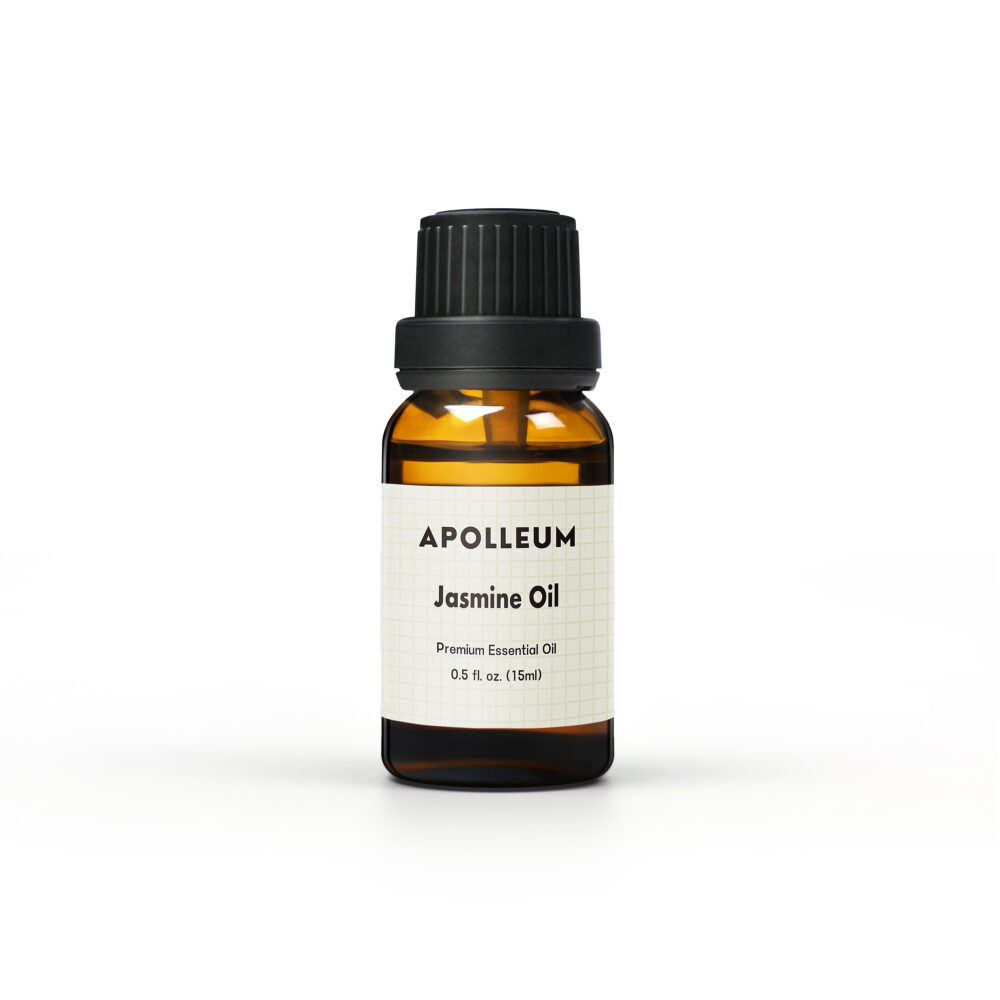
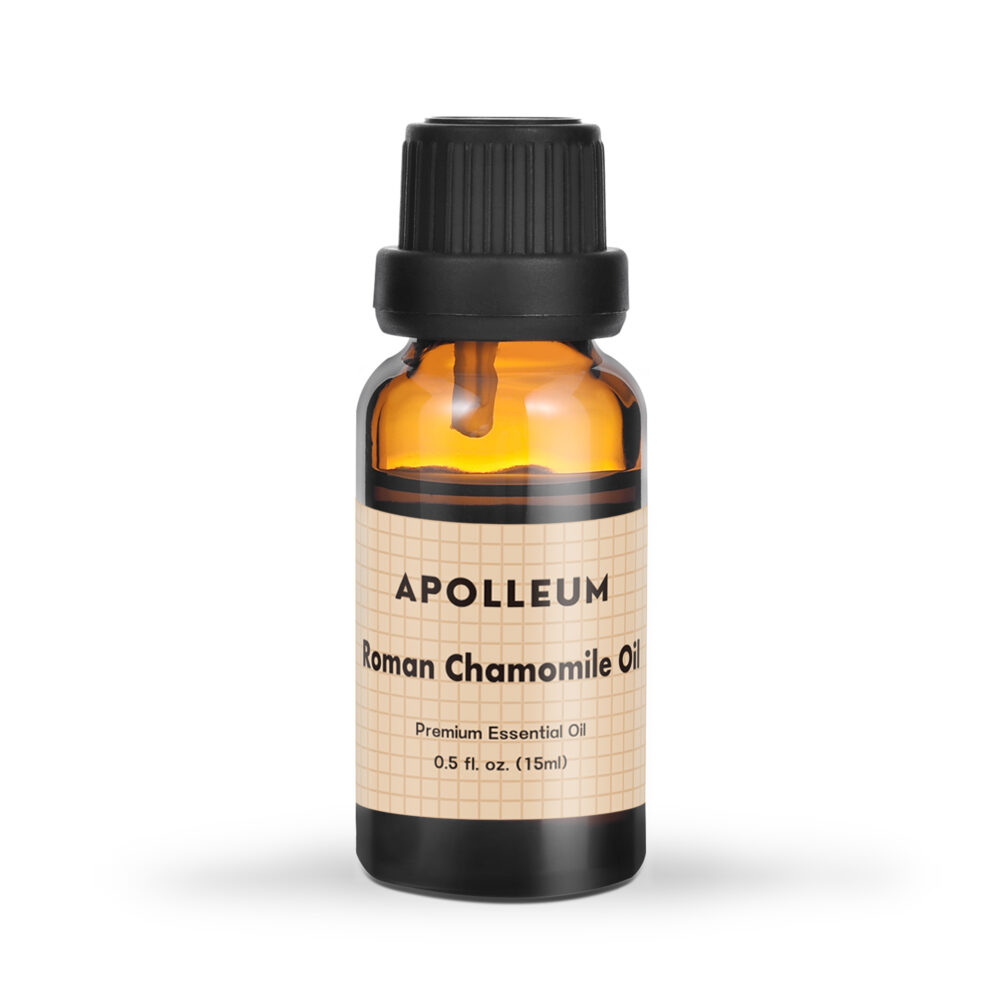
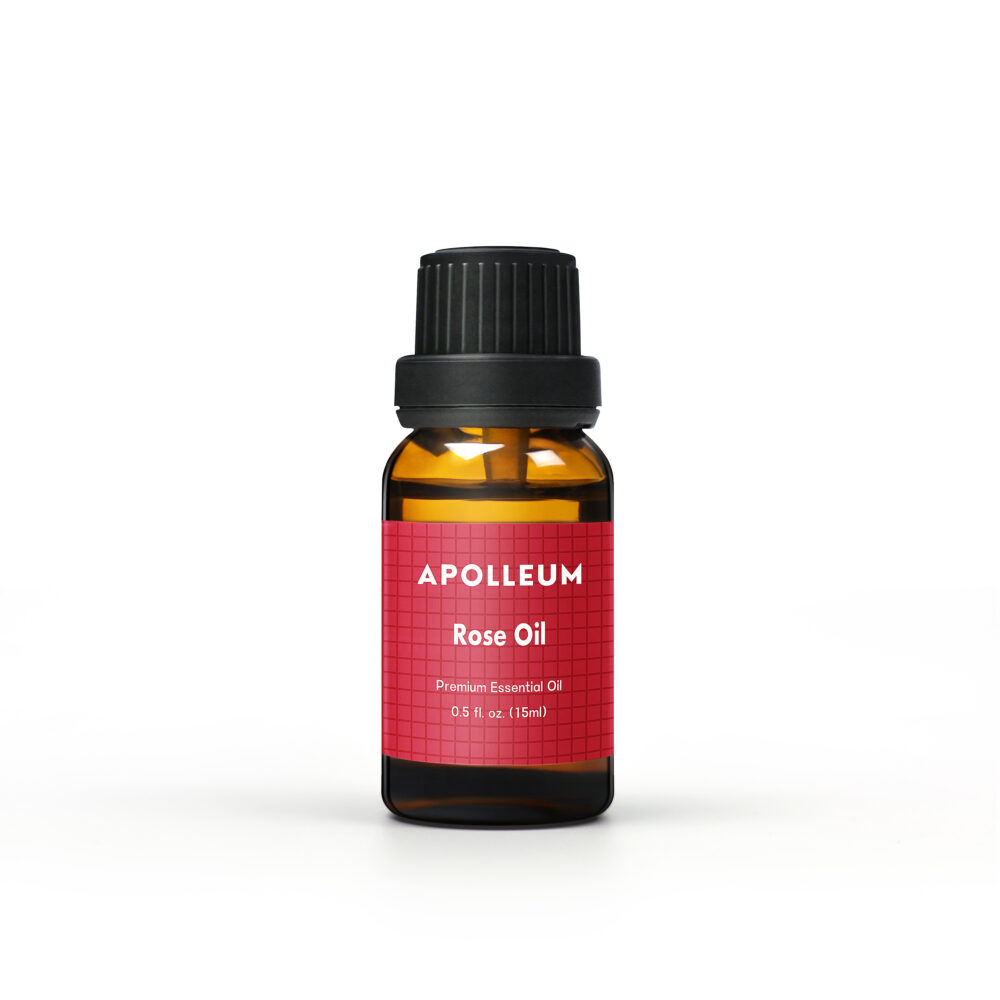
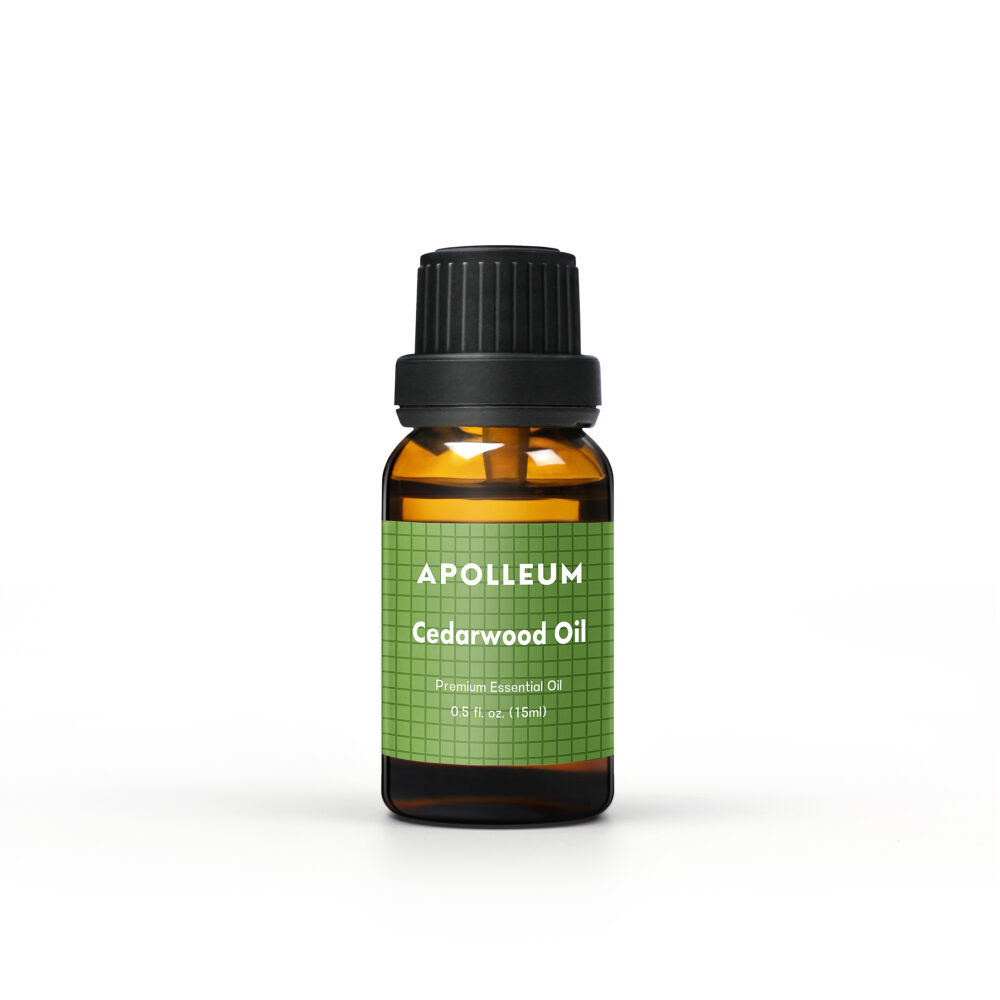
Reviews
There are no reviews yet.